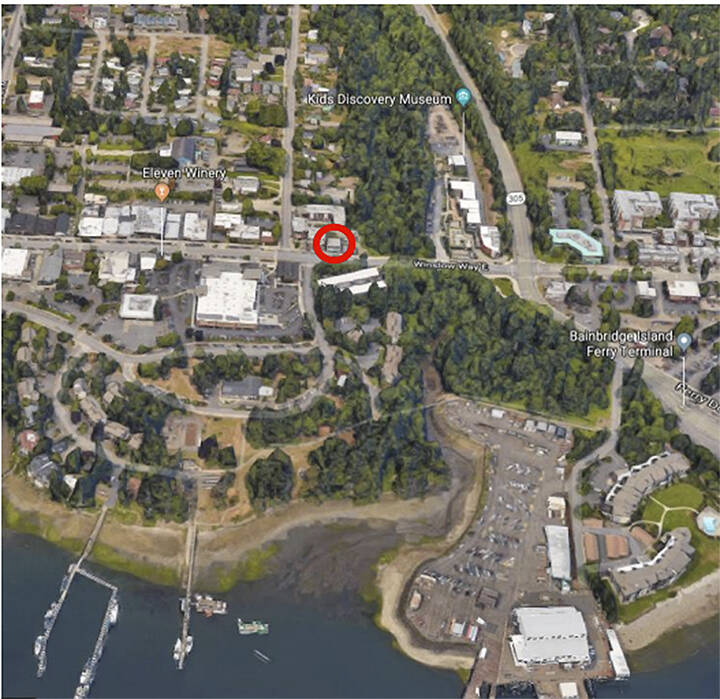The Bainbridge Island Planning Commission meeting Jan. 26 was like a sports event when one side gets a big lead, then the other side comes back.
But this contest will go into overtime and even switch teams as the BI City Council will decide the outcome. A public hearing on the commission’s final decision will take place Feb. 9.
The commission was talking about the Winslow SubArea Plan. A Community Engagement Plan was proposed by the city, but because of claims that it didn’t follow city code it was sent to the commission for input.
City planning director Patty Charnas said it’s too bad there is so much misinformation because the draft CEP involves many more people than the city code’s required steering committee. “It’s quite the opposite,” she said of claims that the CEP lacks public involvement. “I’d say we’re going above and beyond.”
Charnas said Winslow has its own master plan, and the last time its SubArea Plan was updated was 2006 so it’s different than the steering committee required in code for smaller designated centers, such as Lynwood and Island centers. Those work fine in smaller areas where there is better focus. But in an area like Winslow where so much is involved, with a large community steering committee “it’s hard to get things done and done well.”
Because Winslow is so important to BI, the city wants more community engagement. Its CEP reaches out to many stakeholder groups, including underserved people who don’t often get involved with things like steering committees. “It’s robust community engagement,” Charnas said, adding that it’s “important to do things differently” when planning for the future of BI. “There’s many more people (involved) than a steering committee.”
Charnas added that there will be plenty of opportunity for the general public to get involved, including during the Environmental Impact Statement process, which looks at quality of life issues like growth, traffic and air quality. There also will be workshops and open houses.
Another important issue is time. The City Council wants the Winslow SubArea Plan done by the end of the year, as it’s needed for BI’s overall Comprehensive Plan work, which has a Dec. 31, 2024 deadline. “Time is our most precious resource,” Charnas said.
Most of the commission seemed to be agreeing at this point. Ashley Mathews, who was elected chair at the start of the meeting, said she looked at the minutes taken when the City Council discussed this. “They really thought about it,” she said. “They took it a step further than a steering committee.”
But when commissioners started thinking about a middle ground they became more critical.
Sarah Blossom, who was elected vice chair, said the more the topic was discussed the more troubled by it she is. “I feel like it’s kind of been shoved down our throats,” she said regarding the expediency of it. She added stakeholder group gatherings are not public meetings. “If there’s consternation about this (now) it will be there throughout the process.”
Mathews suggested a compromise of a steering committee of three councilmembers and three commission members. They could possibly meet monthly online.
The commission then took an eight-minute break where Mathews, Blossom and Charnas could be seen in discussion. When they went back in session, Blossom made an amendment to the draft CEP. She expanded on Mathews’ earlier idea for a steering committee to also include three members of the Race Equity Advisory Committee. It would work with consultants and city staff on the CEP. That steering committee would have quarterly check-ins with the project team.
Commissioner Yesh Subramanian asked why not have one member from REAC, one from the city’s environmental committee and one other. He said green groups like to be very involved in city decisions, too. Blossom responded that reaching out to underrepresented people is a priority of the CEP. Green groups are more interested in the content of the plan, not the community engagement part.
She said some folks also are concerned about the steering committee part being removed from city code. “If they can’t see it they are uncomfortable. They need to see it in their code.”
Charnas said that’s a good recommendation. She said ideas with good intentions sometimes are so specific they can lead to unintended consequences—things they would never think of “at this stage of the game.”
During public comments, Michael Swank was against the CEP. He wants the city to “adhere to established processes” and not “fast track anything.”
The commission also changed city code so its meetings could officially be at 6 p.m., rather than an hour later.



